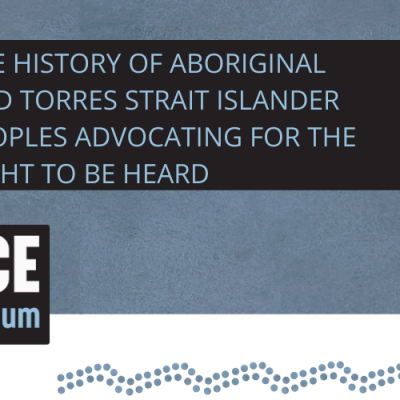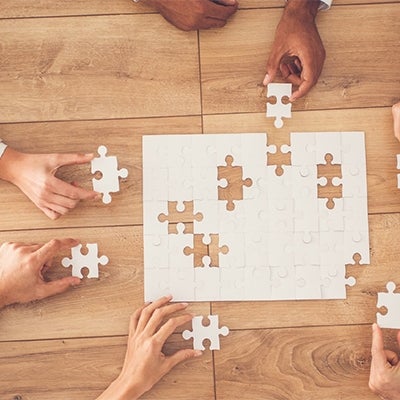Refine results
-
Rights and Freedoms14 March 2024Speech
The Perils of Independence
The Australian Human Rights Commission’s role in protecting human rights in Australia Sir Ronald Wilson Lecture 2021 Emeritus Professor Rosalind Croucher AM President, Australian Human Rights Commission Acknowledgements Thank you Matthew McGuire for your welcome to country and Kendra Turner as MC. I am speaking from the traditional lands of the Gadigal people of the Eora nation, in the city… -
14 December 2012Book page
Bringing them Home - Bibliography
Aboriginal and Torres Strait Islander Overview Committee (Queensland), 1996: First Report (Department of Families, Youth and Community Care, Brisbane). -
Aboriginal and Torres Strait Islander Social Justice2 August 2023Webpage

The history of Aboriginal and Torres Strait Islander peoples advocating for the right to be heard
There is a long history of First Nations people advocating for the right to representation and participation in decisions that affect them. The events listed are a selection of moments in history when Aboriginal and Torres Strait Islander peoples have taken action to call for large-scale change by Australian governments to realise their Indigenous rights, demonstrating the history leading to the… -
Sex Discrimination28 January 2020Publication

Respect@Work: Sexual Harassment National Inquiry Report (2020)
Workplace sexual harassment is prevalent and pervasive: it occurs in every industry, in every location and at every level, in Australian workplaces. -
14 December 2012Book page
Bringing them Home - Chapter 18
Indigenous mental health is finally on the national agenda. As participants in the National Mental Health Strategy, States and Territories acknowledge the importance of the issue. Some of the effects of removal including loss and grief, reduced parenting skills, child and youth behavioural problems and youth suicide are increasingly recognised. -
14 December 2012Book page
Social Justice Report 2007 - Chapter 2: Indigenous communities dealing with family violence and abuse
Family violence and abuse occurs at unacceptable rates in Aboriginal and Torres Strait Islander (Indigenous) communities. We have heard many tragic stories of women, children and young people who have experienced devastating sexual abuse and family violence. It is a scourge that is causing damage and trauma among Indigenous communities, to our women and children, and to the fabric of Indigenous… -
15 July 2014Book page
Chapter 1: How far have we come? Looking back on 20 years of the Social Justice Commissioner role
1.1 Introduction This year marks 20 years since the establishment of the Aboriginal and Torres Strait Islander Social Justice Commissioner (Social Justice Commissioner) role under the Australian Human Rights Commission Act 1986 (Cth). When I first started in this position I was asked if any of the previous Commissioners had left any words or notes of advice. I answered them ‘no, but they all… -
14 December 2012Book page
Appendix 2: Chronology of Events Relating to the Administration of Indigenous Affairs - Social Justice Report 2011
Social Justice Report 2011 Back to Contents Appendix 2: Chronology of Events Relating to the Administration of Indigenous Affairs 1 July 2010 – 30 June 2011 DATE EVENT / SUMMARY OF ISSUE 2 July 2010 Torres Strait Islander sea rights recognised by Federal Court The Federal Court recognised the Torres Strait Regional Sea Claim Group’s native title rights over about 37 800sq. km of sea between… -
14 December 2012Book page
Bringing them Home - Chapter 14
The Government has to explain why it happened. What was the intention? I have to know why I was taken. I have to know why I was given the life I was given and why I'm scarred today. Why was my Mum meant to suffer? Why was I made to suffer with no Aboriginality and no identity, no culture? Why did they think that the life they gave me was better than the one my Mum would give me? -
14 April 2015Book page
1 Social justice - Year in review
1.1 Introduction 1.2 Machinery of Government changes 1.3 The 2014 Budget 1.4 Leadership, representation and engagement 1.5 Constitutional recognition 1.6 Indigenous Jobs and Training Review 1.7 Closing the Gap 1.8 Stolen Generations 1.9 International developments 1.10 Australian Human Rights Commission complaints 1.11 Conclusion 1.1 Introduction At the beginning of this reporting period, we… -
14 December 2012Book page
Chapter 2 - Introduction: Social Justice Report 2009
Indigenous imprisonment rates in Australia are unacceptably high. Nationally, Indigenous adults are 13 times more likely to be imprisoned than non-Indigenous people[1] and Indigenous juveniles are 28 times more likely to be placed in juvenile detention than their non-Indigenous counterparts.[2]
